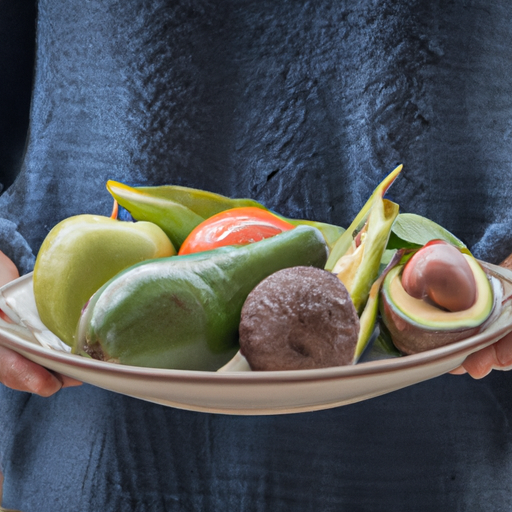Digestive health plays a crucial role in maintaining overall well-being, and one common issue that many people face is constipation. Constipation can be uncomfortable, disruptive, and even painful. However, with the right knowledge and strategies, it can be effectively managed and even prevented. This article will delve into the world of nutrition and its impact on digestion, specifically focusing on how dietary choices can improve gut health and prevent constipation. We will explore the symptoms and causes of constipation, as well as the various approaches to diagnosis and treatment. By understanding the importance of nutrition in maintaining a healthy gut, individuals can take proactive steps towards alleviating digestive discomfort and improving their overall quality of life.
1. "Understanding Digestive Health: Symptoms, Causes, and Diagnosis of Constipation"
Constipation is a common digestive issue that affects millions of people worldwide. It occurs when bowel movements become less frequent or difficult to pass. While occasional constipation is usually not a cause for concern, chronic constipation can be uncomfortable and even lead to complications if left untreated.
Understanding the symptoms of constipation is essential for early diagnosis and effective treatment. The most common symptom is infrequent bowel movements, typically fewer than three times a week. Other signs include straining during bowel movements, hard or lumpy stools, a feeling of incomplete evacuation, abdominal discomfort, and bloating.
Various factors can contribute to the development of constipation. One of the primary causes is a lack of dietary fiber. Fiber, found in fruits, vegetables, whole grains, and legumes, adds bulk to the stool, making it easier to pass. Insufficient fluid intake can also lead to dehydration and subsequently exacerbate constipation. Inadequate physical activity, certain medications (such as painkillers and antidepressants), and underlying medical conditions like hypothyroidism or irritable bowel syndrome can also contribute to constipation.
To diagnose constipation, healthcare professionals typically consider the patient’s medical history, perform a physical examination, and evaluate the frequency and characteristics of bowel movements. They may also order additional tests if necessary, such as blood tests, colonoscopy, or imaging studies, to rule out any underlying conditions.
Treatment for constipation often starts with dietary and lifestyle changes. Increasing fiber intake by consuming more fruits, vegetables, and whole grains can
2. "Improving Digestion through Nutrition: Key Dietary Strategies for a Healthy Gut"
A healthy gut is the foundation of overall well-being, and one of the key aspects of maintaining a healthy gut is through proper nutrition. By incorporating certain dietary strategies into our daily routine, we can significantly improve digestion and prevent the discomfort of constipation. Here are some key dietary strategies to promote a healthy gut and enhance digestion.
1. Increase Fiber Intake: Fiber plays a crucial role in maintaining regular bowel movements and preventing constipation. It adds bulk to the stool, making it easier to pass through the digestive tract. Including fiber-rich foods such as fruits, vegetables, whole grains, legumes, and nuts in our diet can provide the necessary fiber for a healthy gut. Aim to consume at least 25-30 grams of fiber per day.
2. Stay Hydrated: Drinking an adequate amount of water is essential for proper digestion. Water helps soften the stool, making it easier to pass through the intestines. Aim to drink at least 8-10 glasses of water each day, and increase your intake during hot weather or when engaging in physical activities.
3. Consume Probiotic Foods: Probiotics are beneficial bacteria that promote a healthy gut microbiome. These live microorganisms can improve digestion by breaking down food, absorbing nutrients, and preventing harmful bacteria from flourishing. Incorporate probiotic-rich foods like yogurt, kefir, sauerkraut, kimchi, and tempeh into your diet to support a healthy gut.
4. Limit Processed Foods: Processed foods are often
3. "Treatment Approaches for Constipation: Lifestyle Changes, Medications, and Natural Remedies"
Treatment Approaches for Constipation: Lifestyle Changes, Medications, and Natural Remedies
When it comes to treating constipation, there are several approaches that can provide relief and improve digestive health. These treatment options range from making simple lifestyle changes to using medications or trying natural remedies. In this section, we will explore each of these approaches in detail.
1. Lifestyle Changes:
Making certain lifestyle changes can have a significant impact on your digestive system and help alleviate constipation. Here are some suggestions:
a. Increase Fiber Intake: Consuming an adequate amount of dietary fiber is crucial for maintaining regular bowel movements. Foods rich in fiber include fruits, vegetables, whole grains, and legumes. Aim to incorporate these into your daily diet.
b. Stay Hydrated: Drinking enough water throughout the day is essential for keeping your stools soft and preventing constipation. Aim for at least eight glasses of water per day.
c. Exercise Regularly: Engaging in regular physical activity stimulates the muscles in your intestines, promoting better digestion and bowel movements. Incorporate exercises such as walking, jogging, or yoga into your routine.
d. Establish a Routine: Try to establish a regular bowel movement routine by visiting the toilet at the same time each day. This can help regulate your digestive system.
e. Manage Stress: Stress can have a negative impact on your digestive health, leading to constipation. Engage in stress-reducing activities such as meditation, deep breathing exercises, or hobbies you enjoy.
2. Medications:

